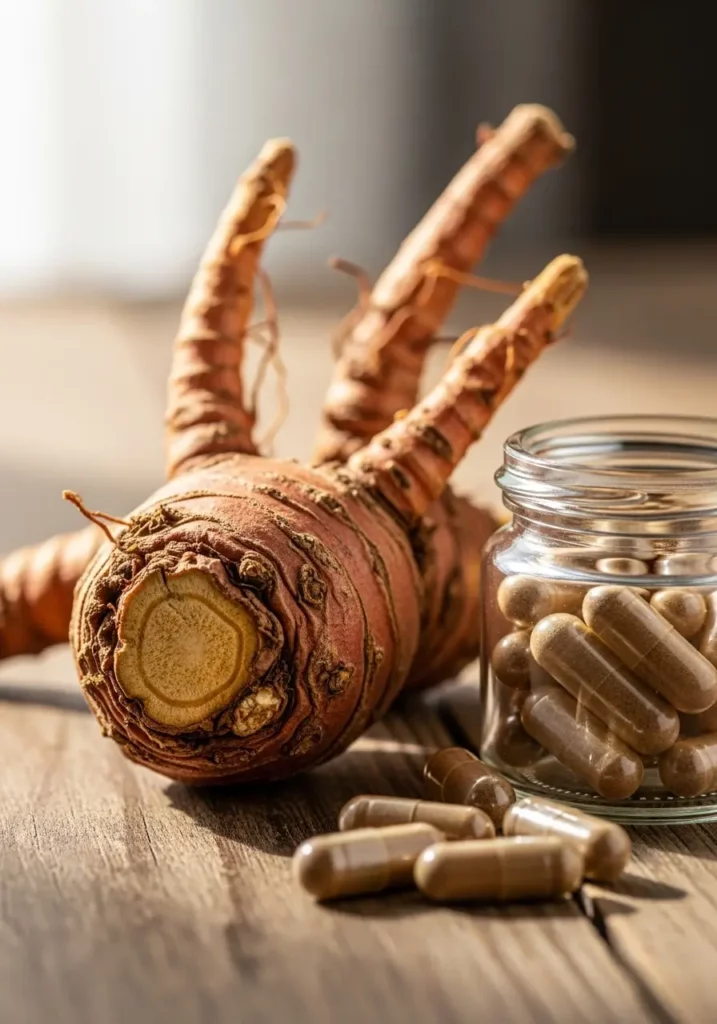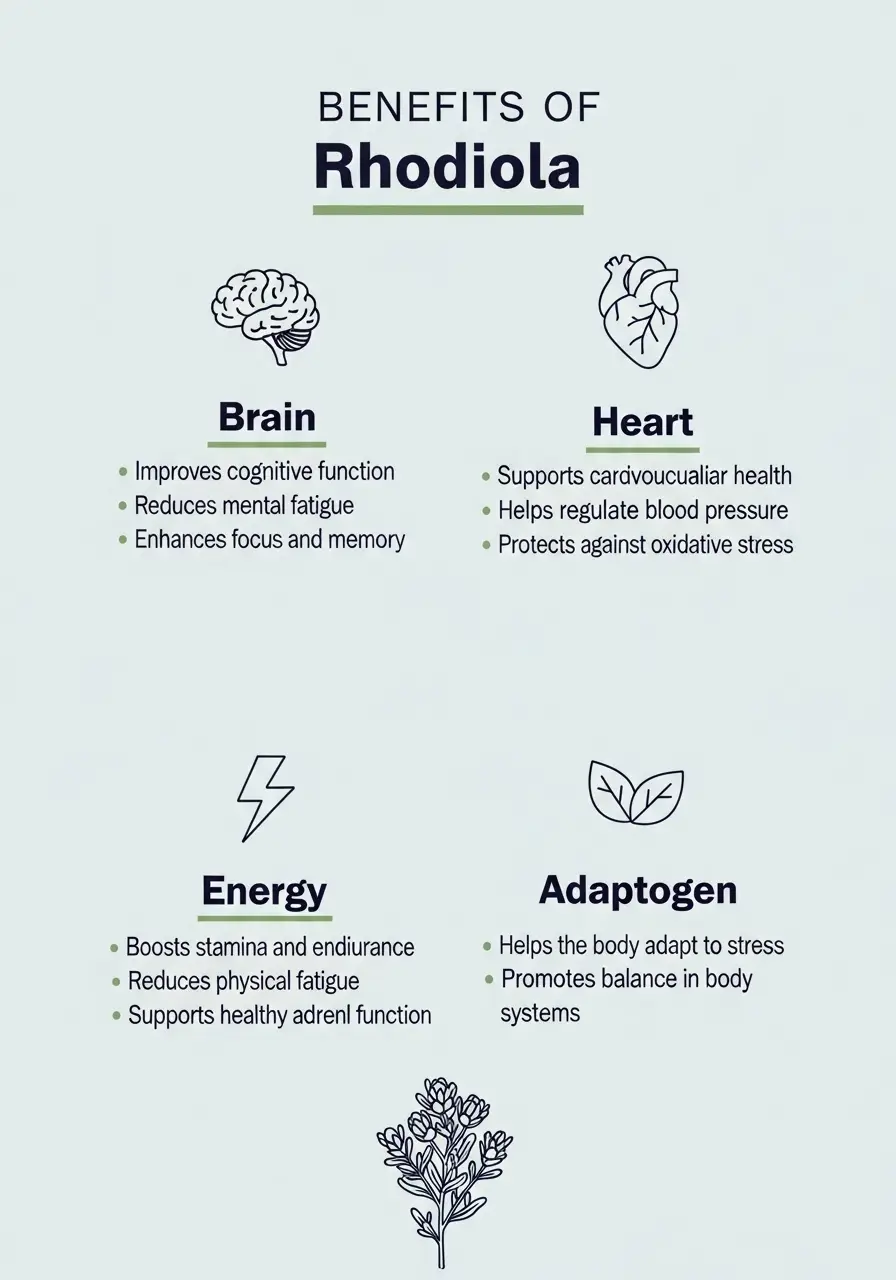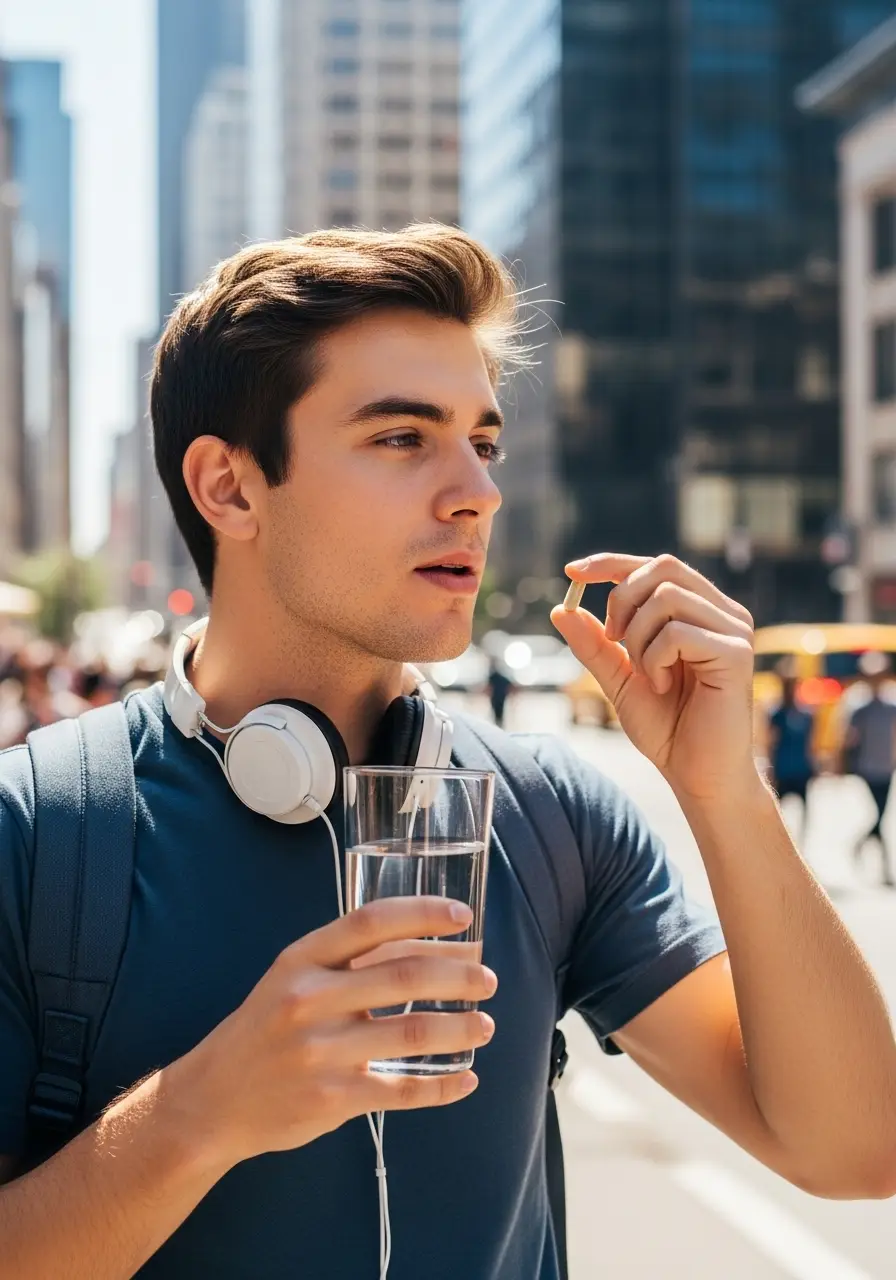

Why Rhodiola is in the spotlight this month
Rhodiola rosea is not just a “fatigue herb,” but a scientifically proven adaptogen that helps the body cope with stress, changes in routine, and increased stress.

August is the ideal time to use it: the end of summer and the start of a new work or school season require quick adaptation.
At Vitafoods Europe 2025, rhodiola was mentioned among the five key plant ingredients for supporting mental productivity and endurance.
Particular emphasis was placed on the standardization of extracts and combined formulas — for example, rhodiola + L-theanine to reduce anxiety without drowsiness.

How Rhodiola works
Rhodiola affects several systems at once:
-
Nervous system — regulates cortisol levels, reduces the effects of chronic stress.
-
Energy metabolism — stimulates ATP synthesis in mitochondria, increases physical endurance.
-
Brain activity — increasing serotonin, dopamine, and norepinephrine levels to improve mood and concentration.
-
Antioxidant protection — reducing oxidative stress, which is important during intense work or study.
📌 In a clinical study by Darbinyan et al. (2000), students who took rhodiola extract showed better results in tests of concentration and thinking speed during exams.

Table 1. Forms of Rhodiola and characteristics
| Form | Standardization | Features |
|---|---|---|
| Dry extract (capsules/tablets) | 3% rosavin, 1% salidroside | Most commonly used in studies, controlled dosage |
| Liquid extract | 2–3% rosavin | Rapid absorption, but more difficult to control dosage |
| Root powder | No standardization | Less predictable effect, larger volumes required |
| Combined formulas | Rhodiola + L-theanine/magnesium | Enhance the anti-stress effect |

Who is Rhodiola recommended for?
-
People with chronic fatigue and emotional burnout
-
Students and schoolchildren during periods of intensive study
-
Those who work in stressful conditions
-
Athletes and people with high physical activity levels
Table 2. Dosage and indications
| Purpose | Daily dose (extract) | Course |
|---|---|---|
| Increased performance | 200–400 mg | 2–4 weeks |
| Anti-stress effect | 300–400 mg | 4–6 weeks |
| Sports support | 400–600 мmg г |
Before competitions or intensive training |
Contraindications and precautions
-
Pregnancy and lactation (insufficient safety data)
-
Insomnia (best taken before lunch)
-
Uncontrolled hypertension
-
Allergy to plants of the Crassulaceae family
Practical tips from Vitafoods
-
Delivery systems: prolonged-release capsules, which maintain a stable level of active substances throughout the day, have shown the best results.
-
Combinations: Rhodiola with L-theanine or magnesium enhances the anxiety-reducing effect.
- Standardization: Choose products with clear indication of rosavin and salidroside content.
References
-
Darbinyan V. et al. “Rhodiola rosea in stress and fatigue.” Phytomedicine. 2000.
-
Panossian A., Wikman G. “Effects of adaptogens on the central nervous system and the molecular mechanisms associated with their stress-protective activity.” Pharmaceuticals. 2010.
-
Spasov A.A. et al. “A double-blind, placebo-controlled pilot study of the stimulating and adaptogenic effect of Rhodiola rosea SHR-5 extract on the fatigue of students.” Phytomedicine. 2000.




